Boardroom sat down with ESPN 30 for 30 director Steve James to hear the inside baseball behind profiling basketball’s biggest enigma.
Bill Walton is in outer space.
No, he did not join Michael Strahan and Jeff Bezos on a long-distance flight from Blue Origin. Rather, he’s on a Zoom call with Pat McAfee and AJ Hawk, explaining why Nicola Jokić is able to dominate the NBA Playoffs all from the custom comforts of a background that mirrors Magic the Gathering or a trip scene from a Harold and Kumar film.
“He enjoys passing,” Walton says. “His passes are timely and accurate. And when you have that? It allows the offense to flow seamlessly pretty much like the Arkansas River coming off the eastern spoke off the continental divide.”
Glowing atop the fantasy screensaver, it’s tough to tell whether the light is coming from his laptop or within. Just the same, it’s tough to tell whether the retired Hall of Famer is talking about the Nuggets All-Star or himself.
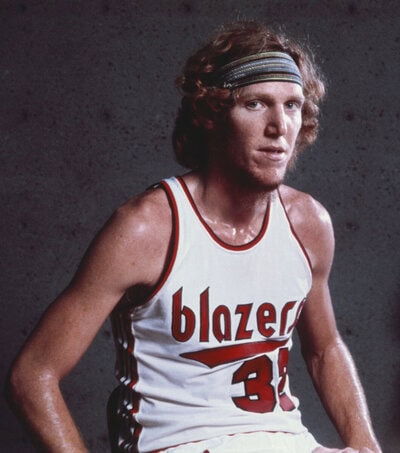
For 70 years, it’s been tough to tell what Bill Walton is talking about.
Born with a speech impediment and now an acclaimed announcer both loved and loathed for his stream-of-consciousness tangents, the NBA All 75 Team member has lived a life of being misunderstood and made a living off his counterculture intricacies.
Forty-four years ago, Walton signed what was then the biggest basketball contract in NBA history, inking an $800K annual salary with the San Diego Clippers. It came on the heels of sitting out a season in Portland due to a public protest of their medical staff with his new deal in Southern California including comped concert tickets.
These days, Walton works on-air as a color commentator, calling Pac-12 games on live television in Grateful Dead gear while occasionally gracing the NBA App as a host for his Throw it Down telecast.
On Tuesday, Walton’s weird world of alternative programming seamlessly flows like that of the Arkansas River as his biographical docuseries debuted in the days between NBA Finals games.
Calling in acclaimed director Steve James, ESPN reached out to the mind behind Hoop Dreams to dive into the galaxy that is Bill Walton. The original brief was to create a documentary focused on Walton and his famed 1977 season in Portland, in which he led the NBA in both blocks and rebounds, leading the Trail Blazers to their first and only NBA championship.
It was perfect fodder to run on an off-day in which ABC had the 2023 NBA Finals. However, James saw something bigger.
“I was approached by ESPN about doing this project,” James told Boardroom. “I knew a bit about his story, but I hadn’t read his memoir. I read it and I said, ‘I’d love to do it.'”
Having chronicled the triumphs and trials of Steve Prefontaine and Allen Iverson, James saw a story in Walton that was bigger than one title run.
Rather, he saw a chance to unpack a life that spans sports, politics, social unrest, an unlikely entertainment ascent, and an incredibly bittersweet bill of health.
“I wanted to get my arms around his entire career,” James said. “They totally were agreeable with that.”
Chatting with Boardroom, James shines a light on The Luckiest Guy in the World, his new docuseries about the life and times of Bill Walton.
It’s an illuminating look at a star who’s always floated in his own orbit, transcending basketball, politics, and even business in a way you have to see to believe.
Appointment Viewing
Three accessories defined Bill Walton’s wild ride in Portland.
A headband, a bicycle, and crutches.
After exiting UCLA with three National College Player of the Year awards and two NCAA championships, Walton went first overall to the Trail Blazers — a franchise only in its fourth year of existence. His four seasons in Oregon were a medley of injuries, polarizing public behavior, and self-discovery.
“He’s a very unique person in American sports,” James said. “The various transformations he’s made over the years from a very quiet, withdrawn athlete in his early years — who was hugely successful — to in his early years being vilified for being hurt a lot to his political views.”
From only playing 35 games as a rookie to winning a title and Finals MVP in Year 3, Walton’s run in Portland was surrounded by controversy — and cameras.
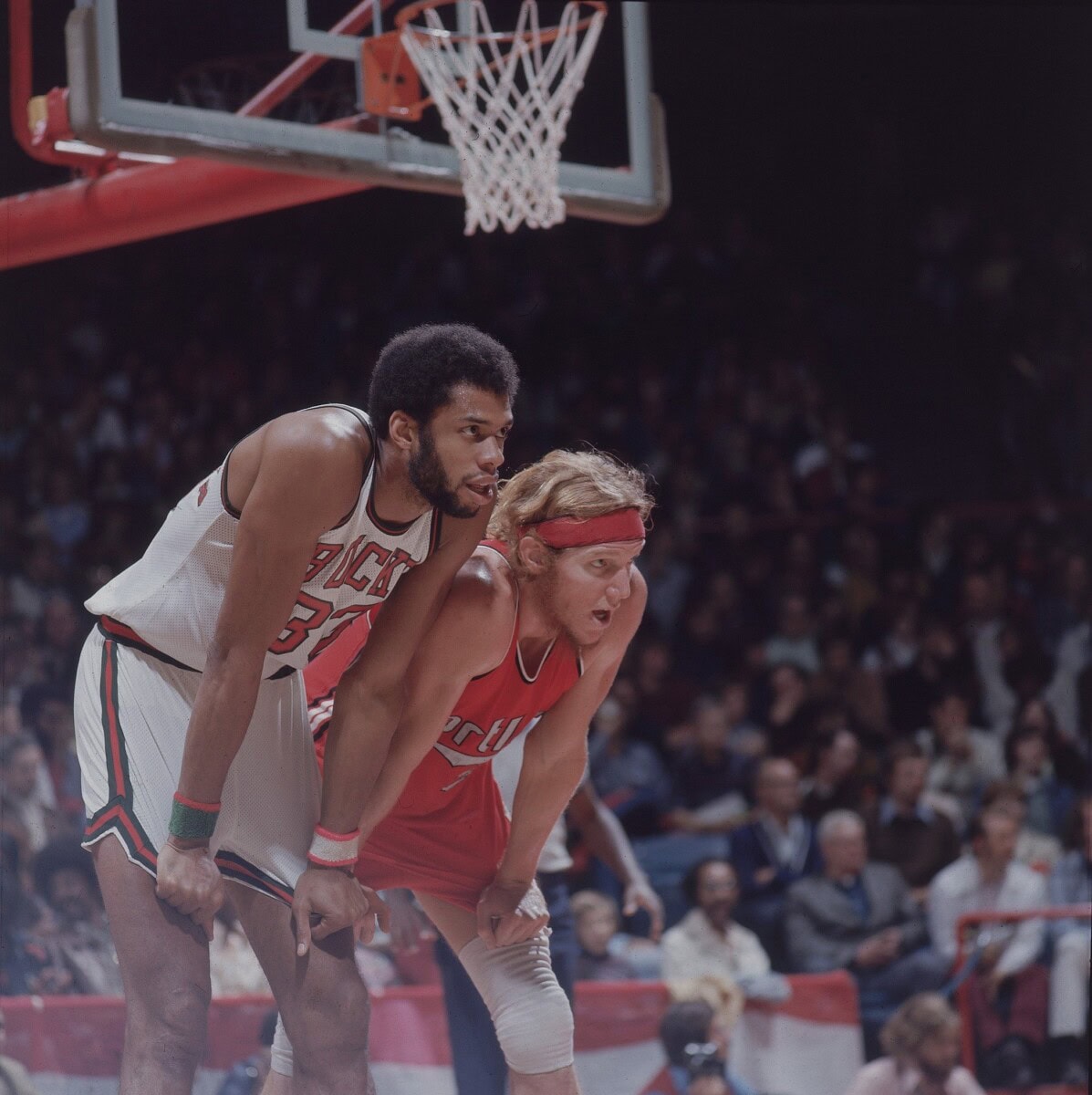
Unbeknownst to most, a documentary shot around the 1977 championship team was unearthed and obtained by ESPN to add archival film to the new 30 for 30.
“You see practice footage, game footage,” James said. “Footage most people have not seen.”
Debuting on June 6 — a night in which the Nuggets vs. Heat series is on rest — fans will get an inside look at the man most known now from his sideline commentary. While Jokic and Kevin Love will be off that evening, video clips dating back to the ’70s reveal an amazing post-passer who was not just ahead of his time but ahead of his coaches.
“Bill’s instincts for outlet passing even predated Wooden,” said James. “You could see it in his high school footage, his coach talks about Bill whipping an outlet pass before he even hit the ground. People have talked about Jokic being the greatest passing big man since Bill Walton. If you do a deep dive on his footage you see the offense ran through him.”
As exemplified, Walton’s unique lens on the game got him paid more than most basketball players of his era. Just the same, his unique lens on life made him maligned by the media in his playing days yet an appealing broadcaster in his retirement. It’s a balance that’s made him more enigmatic than just about any of his player peers.

A walking contradiction, Walton the center was both a coach’s dream and an organization’s nightmare. As a player, he was as team-oriented as a superstar talent ever was, placing passing, defense, and rebounding above scoring or any individual accolade. Still, his tragic injury issues made him miss more games and receive more flack than even today’s purveyors of load management could imagine.
That was just the highs and lows of Walton between the lines. As an alternative thinker, his ability to question authority — the US government at that — was inspiring to an audience of hippies while painful for PR personnel. In the ’70s, his rebellious rhetoric was viewed as even too much for progressive Portland.
Wearing his hair past his shoulders and heart on his sleeve, the No. 1 draft pick and eventual MVP challenged social constructs, war, and politics in a manner seldom seen in an athlete of his size, stature, or background.
“Bill is arguably one of the most outspoken White athletes in American sports that we’ve seen,” James said. “There’s a history of great Black athletes who have spoken out and been heard incredibly, Muhammad Ali and Bill Russell immediately come to mind. Bill was outspoken, and he was outspoken at a time when he was a pretty shy guy in general. He was very outspoken about his views of the US government and the FBI.”
Keep in mind, Walton’s will to speak out came with the weight of a speech impediment in an era where athletes couldn’t type their thoughts, instantly appearing online. All his outspoken moments aligned with not just the height of his fame but the lows of his injuries.
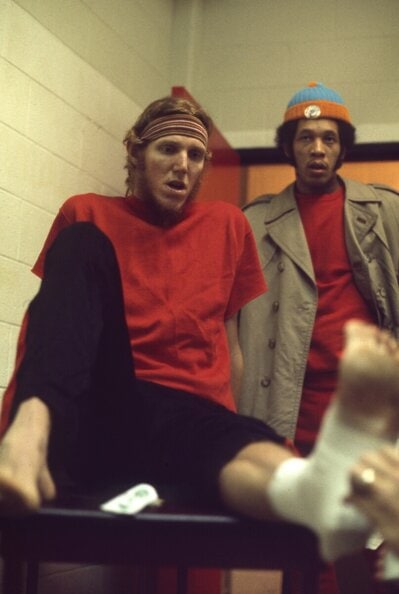
In Portland, it all culminated in a revolt against the franchise’s treatment of the injuries of his peers and his own. The public protest saw Walton sit out an entire season, signing with his hometown San Diego Clippers after an aggravating year off the court.
Changing uniforms, some saw the jersey swap as not just a money move but a rebrand. Moreso, it was taking the weight off a highly scrutinized NBA arrival that positioned him as a public target.
“When he got to San Diego, I think he decided that he didn’t want to be this counterculture icon that he’d become in Portland,” said James. “I think the suit that he wore to the press conference isn’t representative of who he was either. It wasn’t like he suddenly became a corporate brand, I think he just wanted to make a clean break with Portland.”
Still Bill, he encountered countless surgeries while in California, butting heads with team owner, Donald Sterling. While his contract allowed access to concerts, his body was begging for a change in career path.
After attending law school at Stanford while trying to stay on the court for the Clippers, Walton signed with the Boston Celtics, where he’d moved to a different bench.
In Boston, Bill won the 1986 NBA Sixth Man of the Year and another title, defying a body that had often denied him. Once retired, the next mountain to climb was his staggering stutter, a steep summit that meant continued work and purpose on television.
As expected, James and his docuseries jumped into Walton’s second professional path with the same showmanship.
Colorful Commentator
Bill Walton — the basketball player — was prophetic, sensing a shot block before it happened while parlaying it into a fast break.
Bill Walton — the TV analyst — is polarizing.
“People either love him as an announcer or they really, really don’t like him,” James said. “But he is unique, and he knows that. He knows he has his defenders and his detractors but he’s going to do it his way.”
In the 30 for 30 docuseries, James dives into Walton’s transition from the 7-foot center barely able to walk to the TV announcer who once couldn’t talk.
Blessed by the divine intervention of running into Clippers play-by-play man Ralph Lawler while on a 7-11 beer run, Walton’s work on his speech has made him one of basketball’s best journeymen in the television business.
Over the course of over 30 years, he’s taken titles at CBS, NBC, ABC, and ESPN. Walton’s worked on basketball’s biggest occasions and even won an Emmy for his off-kilter excellence.
More impressively, he’s carved out a niche lane today that allows him to be his true and full self, calling Pac-12 games and having his alternate telecast.
This West Coast time slot and app audience allow for tangents that the bigwigs in major markets or East Coast cable companies wouldn’t allow.
“They’d say, ‘You can be Bill, but you can’t give history lessons about Lewis and Clark during the broadcast,'” James said. “He has a lot freer hand to be who he is where he is now. He’s able to channel his freak flag if you will, and that’s okay for that venue.”
It also allows for a more colorful wardrobe.
“Some years ago he made a decision that he was never going to wear a suit again,” said James. “When he was first announcing the NBA games he was wearing a suit every time because it was a requirement and I think he wanted to fit in. He has since decided that he’s going to wear his Grateful Dead t-shirts and do the games his way. It’s one reason why he’s not doing the Finals.”

Bill Walton, a man who’s played in three NBA Finals and won two of them, need not take a check from ABC or direction. Just like his alternate telecasts attain an audience all their own, Walton’s found the time to tell his own story while basketball’s best are on rest.
With this week’s debut of The Luckiest Guy Alive, the well-renowned Dead Head is resurrecting one of ESPN’s most storied series in parallel to that of the Nuggets vs. Heat series.
It all aligns for a timely tale that’s continuing to build one of entertainment’s best brands within a brand.
30 Plus
When Bill Simmons and Connor Schell created 30 for 30 as ESPN employees back in 2007, the concept was both simple and daunting: tell 30 dramatic sports stories in film form that capture the network’s then-three decades of existence.
Somewhat surprising? They absolutely stuck the landing from diving deep into Michael Jordan’s baseball sabbatical to explaining the intersection of crime and soccer in Colombia. Even more impressive, they were able to pull in top talent directorially such as Ron Shelton and Barbara Kopple. Levi’s and Cadillac served as the headlining sponsor, helping fund the projects and allowing for fewer advertisement breaks.
30 for 30 was a critical and commercial success. Thus, it was no longer intended to stop at 30.
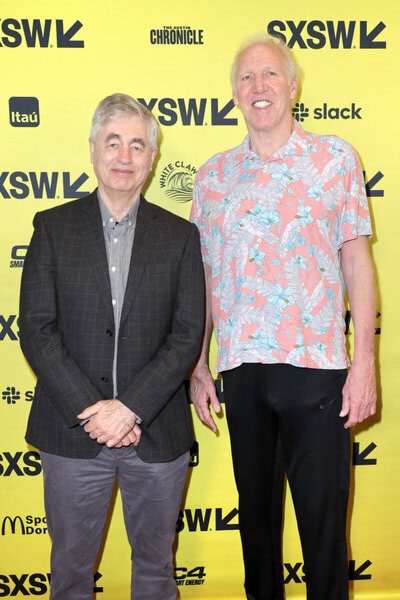
In the time since the series’ Oct. 6, 2009, debut, 30 for 30 has expanded to numerous seasons, stories, and platforms. From the days of DVD box sets to the podcast phenomenon, 30 for 30 is among the strongest brands built within ESPN, now creating leverage for the company’s streaming service, ESPN+.
There since the start was Steve James, famous for directing No Crossover: The Trial of Allen Iverson, back in Season 1.
Perhaps more powerful, his 1994 masterpiece, Hoop Dreams, may have sparked the fervor for sports documentaries in a modern sense.
In a world where The Last Dance united a divided country at a standstill and content consumption exists at an all-time high, fans will have the chance to take in Walton’s rich story in an intimate fashion more modern than his memoir.
James, a lifelong basketball fan who grew up watching Walton at UCLA and even played a season of college ball himself, had the privilege of spending time talking to the living legend about his high highs and low lows. It was all captured on tape with much of it making it to the final cut.
“There was a bit of a dance until he fully gave himself over to it,” James said. “One of the reasons I include the exchanges back and forth between me and Bill — which I do more in this film than in any other film I’ve done — is because I felt those exchanges were revealing.”
Parseling practice footage from the ’70s and ’80s as well as new interviews with the likes of Larry Bird, Kareem Abdul Jabbar, and many more, the project lives in rarified air in which the director saw an opportunity to tell a bigger story rather than a network asking for extra episodes.
The reasons for the four episodes are both bigger than basketball and more meaningful than just waxing poetic about the past.
“Athletes are, in general, more vocal these days about what goes on in the world,” James said. “He wasn’t a person that was seeking media attention, but he had strong political beliefs.”
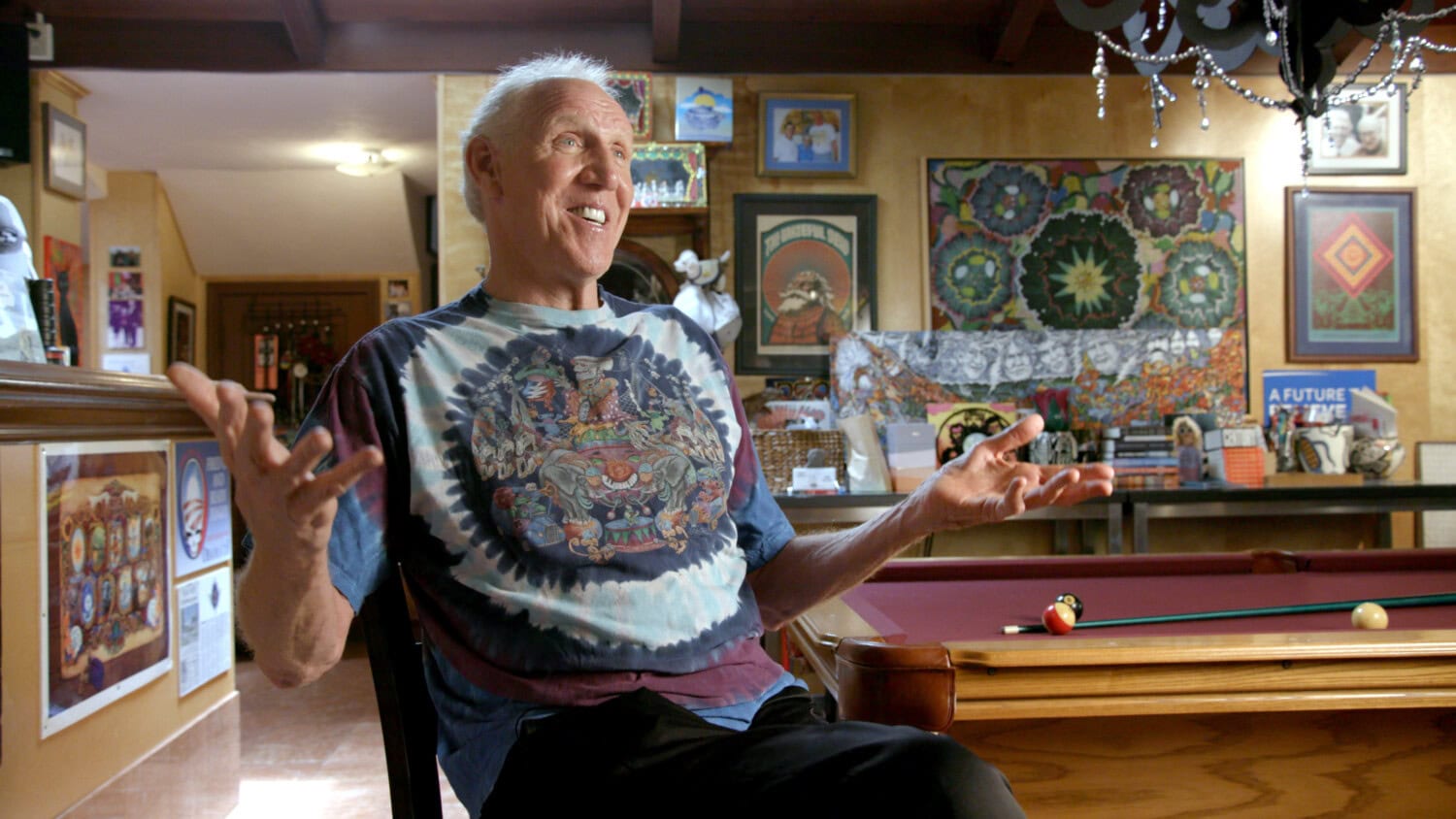
From speaking on social issues with both a stutter and a place of privilege to taking on organizations like his employer and the FBI, Bill Walton’s story is one of triumph and tragedy, scored by major moments of misunderstanding.
As sports documentaries tie tangential themes and alternate telecasts allow off-topic thoughts and bizarre conversations to flourish, perhaps no one is better than Bill Walton to open up a new space of sports media where athletes and culture collide.
“I don’t think anyone has experienced more super highs and super lows than Bill Walton over the course of his life and career in the world of sports,” James said.
It’s a universe only Walton truly understands, but one James has been kind enough to let the world into.